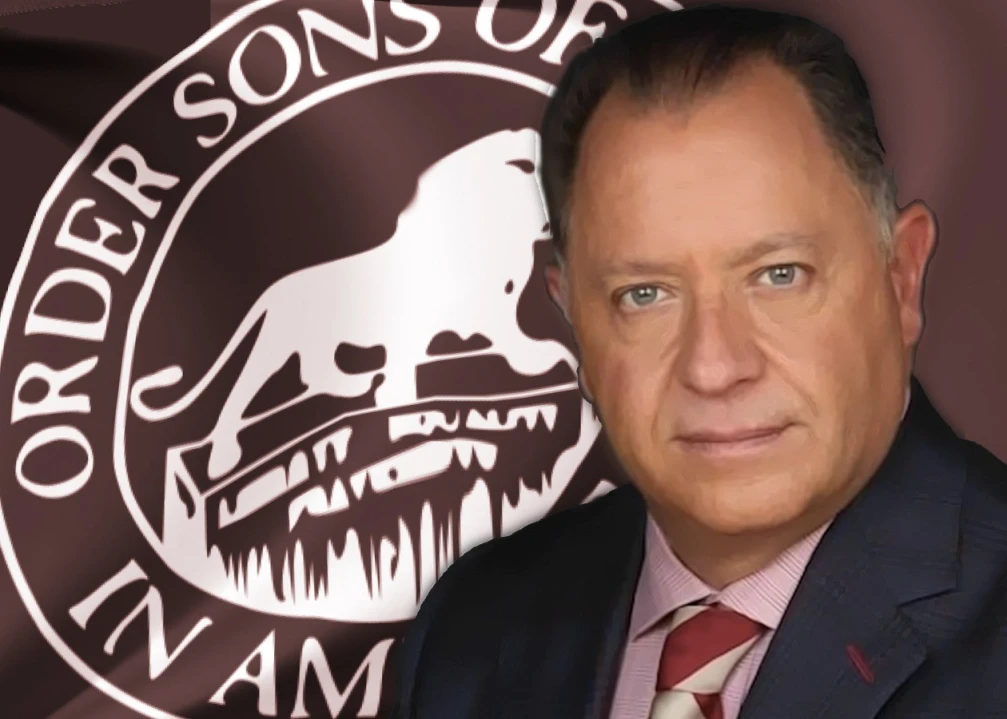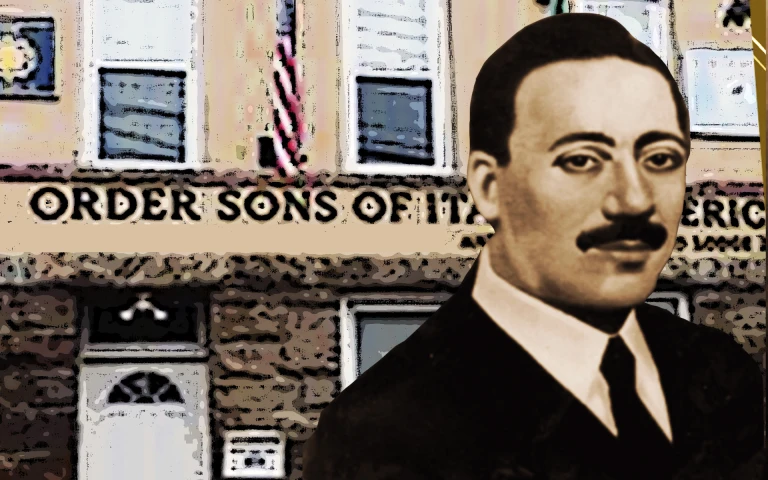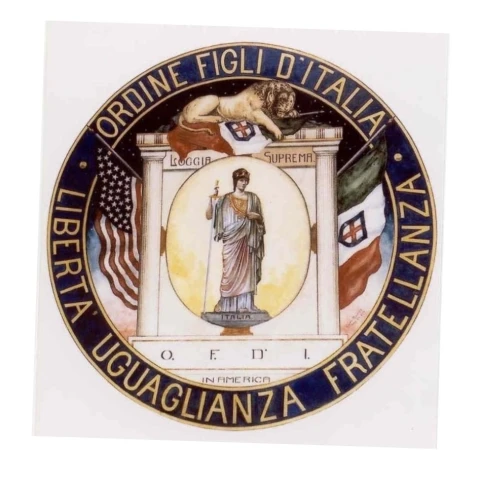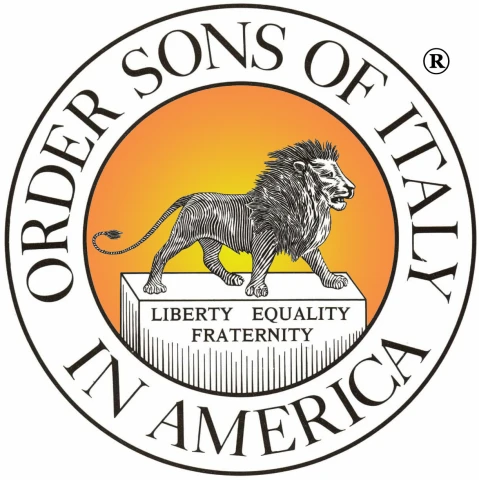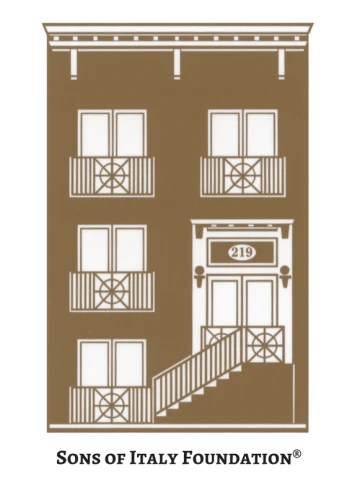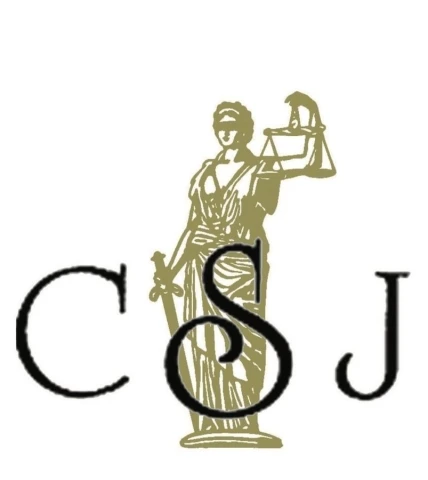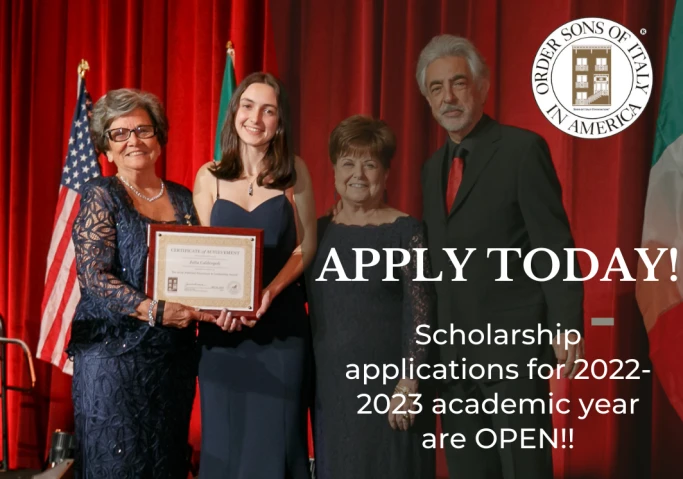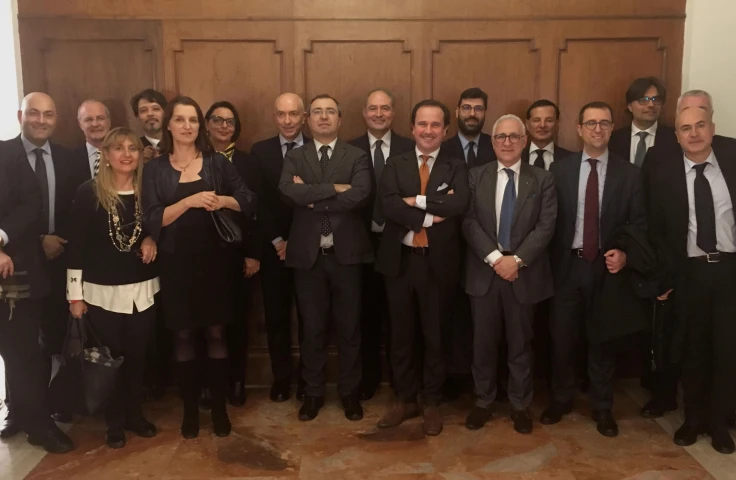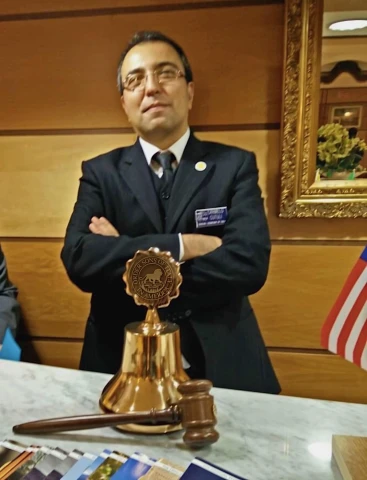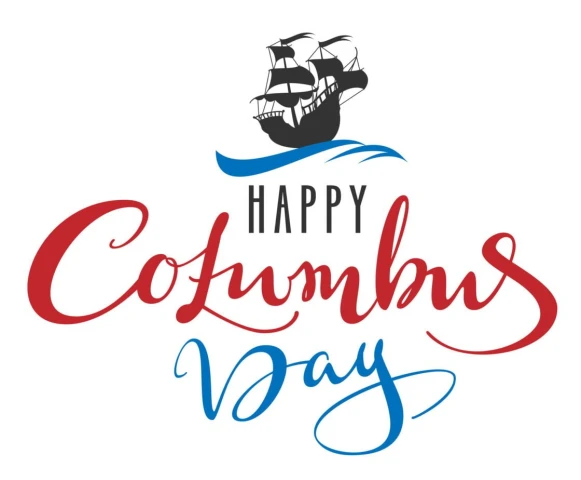When Italians began to arrive in large numbers in the United States, they had no representation and were heavily discriminated. Their rights were not recognized, until 1905 when a visionary, Vincenzo Sellaro, realized that only by uniting and associating themselves could they defend their rights and celebrate their origins.
That is when the Order of Sons of Italy in America (OSIA) was born, and it was the beginning of an associationism that has been fundamental to the success story of the Italian American community for the last 100 years and more. Our very appreciated guest for this interview is the new President of OSIA (today OSDIA), Robert A. Bianchi, and it’s a great pleasure for me to welcome him on We the Italians
Robert, let’s start with something about you. Please tell me about your Italian heritage, and what does being Italian American mean to you
Growing up, being an Italian American was always a point of pride instilled in me by my family. The immigration experience of my mother and father differed greatly, although both families hailed from Italy. My mother came from the more common Italian American immigration experience of a family that was relatively poor, although well educated and having a family trade. My father’s family members were extremely educated, were wealthy while living in Italy, and were very prominent and well-respected leaders after arriving in America. Unlike my mother’s family, my father’s family did not move to the United States out of need, or necessity.
The titular head of my father’s family was Dr. Angelo R. Bianchi who came to the US, speaking 7 languages, Greek and Latin included. He graduated medical school in the late 1800s, and became the first physician in the City of Newark New Jersey, and ultimately the first elected official of Italian extraction in the City of Newark. Dr. Bianchi was friends with Thomas Edison, had business dealings with Henry Ford, and entertained Mother Cabrini, to name a few prominent people who knew Dr. Bianchi. He also received awards from five US presidents, including John F. Kennedy, Harry Truman, Franklin D. Roosevelt.
Even though my parents came from “different sides of the tracks” their Italian roots informed them equally as to the love of family, God, and how hard work, respect, love, and passion for life were the ingredients of a life well-lived. To me, being an Italian American is to forever appreciate, and not take for granted, these invaluable attributes. Being National President of the largest Italian American organization in the United States enables me to the best extent possible to ensure that the greatness of our Italian heritage is never forgotten and that is preserved and passed down to our children.
The story of how Italians who emigrated to America began to associate starts in 1905 with the Sons of Italy: can you please tell more to our readers?
The Sons of Italy in America started when Dr. Vincenzo Sellaro realized that due to discrimination, lack of economic opportunities and desperate need for social safety net programs, Italian immigrants had to form a group to take care of our own. At the time, the OSIA provided that safety net, a network where Italians living in the United States could on their own move up on society. It was highly effective. Historically, the Italian Americans assimilated into American society very quickly. Unfortunately, at that time in American history, part of assimilating was to become as “American” as they could. In the process, we lost much of our language, as our forbearers wanted us to speak “American,” not Italian. Many years later, our ancestors regretted assimilating so much in that regard. That said, the ascendancy of great things that Italian Americans accomplished to contribute to American society is nothing short of impressive. OSIA was at the forefront of making that happen.
Today we have transitioned to an organization of men and women that have donated tens of millions of dollars in charity, scholarships, disaster relief, while promoting our Italian heritage and combating negative stereotypes, and presenting the positive image of great accomplishments of Italian Americans for the benefit of all Americans. A poem of my father entitled I am an Italian American well illustrates the point.
Back in those days, and up until a few years ago, it was just Order of Sons of Italy in America: but now you gained the “D” of Daughters, too…
This was a translation issue that existed for many years. The organization was always intended to be gender neutral, where “sons” was meant to be gender neutral. Women have always been members of the Order, holding office, and an integral part of who we are. But, as modern language progresses, the use of “Sons” became understandably confusing, and led people to think it was a male organization only. Realizing this confusion, we added “daughters” to ensure our sisters realize they are very welcome be part of all of the great things that we do. It has been a very positive development!
Please describe the activities of OSDIA today: together with OSDIA you also have the Sons of Italy Foundation and the Commission for Social Justice…
OSDIA is a little like the Holy Trinity: three separate beings as One. It is comprised of the Supreme Lodge, of which I am the National president. It has two arms that operate under the Supreme lodge where the National President serves as Chairman of the Board, that being, the Sons and Daughters of Italy Foundation (SIF), and the Commission for Social Justice (CSJ). The Foundation is the charitable arm of the Order, and the CSJ is the anti-discrimination, and positive image arm of the Order. The Foundation runs many fundraisers where we donate to many charities, including Alzheimer’s, autism, coolies-anemia, cancer research, modified vans for wounded veterans, disaster relief (which we have donated to Italy as well), and millions of dollars to worthy students for scholarships, to name a few areas we contribute to. We have donated tens of millions of dollars for our charities. The CSJ deals with all issues involving discrimination from media portrayals, discrimination, attacks on Columbus, as well as, promoting a positive image of Italian Americans.
We always welcome people to join and view all of our work on our website and our social media platforms, including YouTube, Instagram, Twitter, and Facebook.
What’s in the future of your organization?
We have a blitz on recruiting younger members, and empowering girls and women to join and take leadership positions. We are also branching out to Italy and honored to have our first lodge in Italy, located in Rome. Thanks to Carmelo Cutuli for making our Rome chapter a reality. The Rome chapter is such a treasure to us. It has surprised me that having lodges in Italy did not happen sooner. But, it was worth the wait. We are so excited to have a chapter in Italy, and I hope we can have more join us! While this is new for us, I envision meeting great, new people, building strategic relations, and working for the common good for a trans-continental relationship with Italy.
We are moving to build economic/business opportunities for our members, we are marketing OSDIA in ways never being done before, such as our Facebook Live Series, YouTube channel, and now we appear on TV reaching 3.8 million homes directly, and live streaming throughout the world. We are also seeking to build strategic partnerships with businesses.
You guys have several lodges, and they are spread in almost all the 50 States...
This is a unique strong point of our organization. Even though we are a National organization, it is built upon the local lodges throughout the US. We live our unique Italian experience through our local lodges that meet together, run events, raise money for charity: all locally. It is a comradeship on a local level that creates life long bonds of friendships, loving relationships, and being with people that share a common experience, being an Italian American. That said, the National Organization located in Washington D.C. provides us the clout to advocate for Italian American issues on a federal, state, and local level. There is such depth and texture to our membership. It is not just being a member, it is a shared and lived experience with like-minded Italian Americans!
What’s the relationship between the local lodges and the headquarter in Washington DC?
The National Organization is the entity that oversees the entire organization across the country. Under the National Supreme Lodge, are the Grand and Subordinate Lodges. Under the Grand and Subordinate Lodges are the local lodges. Each of these lodges are comprised of a SIF and CSJ, hence structured much like the National Supreme Lodge.
The last question is about Christopher Columbus. How do you see the issue of the vicious attacks against him, and what can be done to defend him without disrespecting those who doesn't like him?
From speaking with my Italian friends in Italy, some of what is happening with Columbus here may sound a little odd. I get that. In America, the Columbus issue is a very hot button issue, due to our history here in the US.
The institution of Columbus Day was created by President Harrison in response to the largest lynching in American history, that being, of Italian men in New Orleans. Columbus Day was to honor Italian Americans based upon the sprit of Columbus’ bravery, skill, and mark in history. So, for us in the US, Columbus Day was instituted to honor Italian Americans who fought for their place in American society. As such, Columbus is more than just a historical figure, he was a symbol of the greatness of our culture in American society.
The attacks on Columbus (being bankrupt of factual accuracy), reinforces to us as Italian Americans that we still are one of the last acceptable prejudices in American society. This movement would never gain support of politicians if it were another ethnic group. It is a direct slap in the face of all Italian Americans, who are not even shown the respect to have that day converted into another Italian American holiday (one which we will not accept, but proves a point nevertheless.) And, we have been willing to have the federal government do a study on the facts of this issue, but cannot even get them to do that. Why let facts get in the way of political expediency and special interest groups?! Very sad indeed.
OSDIA is committed to battling this, and has done so for many years. While there has been some progress, Italian Americans have so well assimilated into American society (and are not unified politically), so as to make our ability to get politicians to listen to our concerns pretty much non-existent.
Quando gli italiani iniziarono ad arrivare in massa negli Stati Uniti, non avevano alcuna rappresentanza e venivano discriminati. I loro diritti non erano riconosciuti, fino a quando nel 1905 un visionario, Vincenzo Sellaro, capì che solo unendosi e associandosi avrebbero potuto contare e difendere i loro diritti e celebrare le loro origini.
Nacque così l’Order of Sons of Italy in America, e fu l’inizio di un associazionismo fondamentale per la storia dei successi della comunità italoamericana in questi 100 anni e più. Il nostro gradito ospite di questa intervista è il nuovo Presidente dell’Order Sons of Italy in America, Robert A. Bianchi, al quale è per me un grande piacere dare il benvenuto su We the Italians
Robert, iniziamo con qualcosa su di te. Parlami delle tue origini italiane, e cosa significa per te essere italoamericano
Crescendo, essere un italoamericano è sempre stato un punto di orgoglio instillato in me dalla mia famiglia. L'esperienza di immigrazione di mia madre fu molto diversa da quella di mio padre, anche se entrambe le famiglie provenivano dall'Italia. Mia madre proveniva dalla più comune esperienza di immigrazione italoamericana di una famiglia relativamente povera, anche se ben istruita e con un negozio familiare. I membri della famiglia di mio padre invece erano estremamente istruiti, erano ricchi quando vivevano in Italia, e furono leader molto importanti e rispettati dopo essere arrivati in America. A differenza della famiglia di mia madre, la famiglia di mio padre non si trasferì negli Stati Uniti per bisogno, o per necessità.
Il capostipite del lato paterno della mia famiglia era il dottor Angelo R. Bianchi che quando arrivò negli Stati Uniti parlava 7 lingue, greco e latino compresi. Si laureò in medicina alla fine del 1800, e divenne il primo medico della città di Newark in New Jersey, e infine il primo funzionario eletto di estrazione italiana nella città di Newark. Il dottor Bianchi era amico di Thomas Edison, aveva rapporti d'affari con Henry Ford e conosceva bene Madre Cabrini, per citare alcune persone importanti che conoscevano il dottor Bianchi. Ha anche ricevuto riconoscimenti da cinque presidenti degli Stati Uniti, tra cui John F. Kennedy, Harry Truman, Franklin D. Roosevelt.
Anche se i miei genitori provenivano da "lati diversi della strada", le loro radici italiane li aiutarono allo stesso modo a imparare l'amore per la famiglia, per Dio e su come il duro lavoro, il rispetto, l'amore e la passione per la vita siano gli ingredienti di una vita ben vissuta. Per me, essere un italoamericano significa apprezzare per sempre, e non dare per scontato, questi attributi inestimabili. Essere presidente nazionale della più grande organizzazione italoamericana degli Stati Uniti mi permette al meglio di assicurare che la grandezza della nostra eredità italiana non sia mai dimenticata e che sia preservata e tramandata ai nostri figli.
La storia di come gli italiani emigrati in America hanno iniziato ad associarsi inizia nel 1905 con i Sons of Italy: puoi raccontare di più ai nostri lettori?
L’Order of Sons of Italy in America (Figli d'Italia in America) nacque quando il dottor Vincenzo Sellaro si rese conto che a causa della discriminazione, della mancanza di opportunità economiche e del disperato bisogno di programmi di sicurezza sociale, gli immigrati italiani dovevano formare un gruppo che si prendesse cura di loro. All'epoca, l'OSIA fornì quella rete di sicurezza, grazie alla quale gli italiani che vivevano negli Stati Uniti potevano iniziare a fare carriera nella società. Era molto efficace. Storicamente, gli italoamericani si assimilarono nella società americana molto rapidamente. Sfortunatamente, in quel periodo della storia americana, parte dell'assimilazione consisteva nel diventare il più "americani" possibile. Nel processo, abbiamo perso gran parte della nostra lingua, poiché i nostri antenati volevano che parlassimo "americano", non italiano. Molti anni dopo, i nostri antenati si pentirono di averci costretti ad assimilarci così tanto in questo senso. Detto questo, l'ascesa delle grandi cose che gli italoamericani hanno compiuto per contribuire alla società americana è a dir poco impressionante. L'OSIA è stata in prima linea nel far sì che ciò accadesse.
Oggi siamo diventati un'organizzazione di uomini e donne che hanno donato decine di milioni di dollari in beneficenza, borse di studio, soccorsi in caso di disastri, promuovendo nel contempo il nostro patrimonio italiano e combattendo gli stereotipi negativi, e presentando l'immagine positiva delle grandi realizzazioni degli italoamericani a beneficio di tutti gli americani. Una poesia di mio padre intitolata I am an Italian American illustra bene il punto.
A quei tempi, e fino a qualche anno fa, il vostro nome era solo Ordine dei Figli d'Italia in America: ma ora si è guadagnato anche la "D" di Daughters (Figlie)…
Questo è stato un problema di traduzione che è esistito per molti anni. L'organizzazione è sempre stata intesa come neutra dal punto di vista del genere, dove "sons" (figli) era inteso come neutro dal punto di vista del genere. Le donne sono sempre state componenti dell'Ordine, ne hanno ricoperto cariche e ruoli, e sono parte integrante di ciò che siamo. Ma, con il progredire del linguaggio moderno, l'uso del termine "figli" è diventato comprensibilmente confuso e ha portato la gente a pensare che fossimo un'organizzazione solo maschile. Rendendoci conto di questa confusione, abbiamo aggiunto "figlie" per garantire che le nostre sorelle si rendano conto che sono benvenute a far parte di tutte le grandi cose che facciamo. È stato uno sviluppo molto positivo!
Descrivici le attività dell'OSDIA oggi: insieme all'OSDIA avete anche la Sons and Daughters of Italy Foundation e la Commission for Social Justice...
L'OSDIA è un po' come la Santa Trinità: tre entità separate unite in una sola. È composta dal Chapter Supremo, di cui io sono il Presidente Nazionale. Ha due bracci operativi che operano sotto l’egida del Chapter Supremo, dove il Presidente Nazionale serve come Presidente del Consiglio, cioè la Sons and Daughters of Italy Foundation (SIF), e la Commission for Social Justice (CSJ). La Fondazione è il braccio caritatevole dell'Ordine, e la CSJ è il braccio che si occupa di combattere la discriminazione e di preservare l’immagine positiva dell'Ordine. La Fondazione gestisce molte raccolte di fondi in cui doniamo a molti enti di beneficenza, tra cui quelli che si dedicano ad aiutare chi è affetto dal morbo di Alzheimer, autismo, talassemia, che sovvenzionano la ricerca sul cancro, che si occupano del trasporto dei veterani di guerra con problemi di mobilità, che donano fondi per il soccorso in caso di calamità (che abbiamo donato anche all'Italia), e milioni di dollari a studenti meritevoli per borse di studio, per citare alcune aree a cui contribuiamo. Abbiamo donato decine di milioni di dollari per i nostri enti di beneficenza. Il CSJ si occupa di tutte le questioni che riguardano la discriminazione dei media, gli stereotipi, gli attacchi a Colombo, così come della promozione di un'immagine positiva degli italoamericani.
Diamo sempre il benvenuto alle persone che vogliono unirsi e approfondire tutto il nostro lavoro sul nostro sito e sui nostri account sui social media, tra cui YouTube, Instagram, Twitter, and Facebook.
Cosa c'è nel futuro della vostra organizzazione?
Stiamo facendo una campagna per reclutare membri più giovani e per dare alle ragazze e alle donne la possibilità di unirsi a noi e di assumere posizioni di leadership. Ci stiamo anche espandendo in Italia e siamo onorati di avere il nostro primo chapter in Italia, situato a Roma. Grazie a Carmelo Cutuli per aver reso il nostro chapter di Roma una realtà: è un vero tesoro per noi. Mi ha sorpreso sapere che in precedenza non avevamo mai avuto un chapter in Italia. Ma è valsa la pena aspettare. Siamo veramente entusiasti di avere un chapter in Italia, e spero che altri si uniscano a noi! Questa novità ci permetterà di incontrare nuove persone, costruire relazioni strategiche, e lavorare per il bene comune per una relazione transcontinentale con l'Italia.
Ci stiamo muovendo per costruire opportunità economiche e commerciali per i nostri membri, stiamo commercializzando l'OSDIA in modi mai fatti prima, come la nostra serie Facebook Live, il canale YouTube, e ora appaiamo in TV raggiungendo direttamente 3,8 milioni di case, e con lo streaming dal vivo siamo in tutto il mondo. Stiamo anche cercando di costruire partnership strategiche con le imprese.
Voi avete diversi chapters, e sono sparsi in quasi tutti i 50 Stati...
Questo è un punto di forza unico della nostra organizzazione. Anche se siamo un'organizzazione nazionale, OSDIA è costruita sui chapters locali in tutti gli Stati Uniti. Viviamo la nostra esperienza attraverso i nostri chapters locali che si incontrano, organizzano eventi, raccolgono fondi per beneficenza. È un associazionismo a livello locale che crea legami di amicizia che durano tutta la vita, relazioni affettuose, e la possibilità di stare con persone che condividono un'esperienza comune, essere italoamericani. Detto questo, l'organizzazione nazionale con sede a Washington D.C. ci fornisce il potere di sostenere le questioni italoamericane a livello federale, statale e locale. C'è molta profondità e consistenza nella nostra appartenenza. Non si tratta solo di essere parte di un’associazione, è un'esperienza condivisa e vissuta con italoamericani che la pensano come noi!
Qual è il rapporto tra i chapters locali e la sede centrale di Washington DC?
L'Organizzazione Nazionale è l'entità che supervisiona l'intera organizzazione in tutto il paese. Sotto il Chapter Nazionale, ci sono i Chapters Grandi e Subordinati. Sotto il Chapter Nazionale e quelli Chapters Subordinati ci sono i chapters locali. Ognuna di questi chapters è composto da un SIF e un CSJ, quindi sono tutti strutturati come il Chapter Nazionale.
L'ultima domanda riguarda Cristoforo Colombo. Come vedi la questione dei feroci attacchi contro di lui, e cosa si può fare per difenderlo senza mancare di rispetto a chi non lo ama?
Parlando con i miei amici italiani in Italia, alcune delle cose che stanno accadendo con Colombo qui possono sembrare un po' strane. Lo capisco. In America, la questione di Colombo è una questione molto scottante, a causa della nostra storia qui negli Stati Uniti.
L'istituzione del Columbus Day fu creata dal presidente Harrison in risposta al più grande linciaggio della storia americana, quello di uomini italiani a New Orleans. Il Columbus Day doveva onorare gli italoamericani sulla base dello spirito del coraggio, dell'abilità e del segno di Colombo nella storia. Così, per noi negli Stati Uniti, il Columbus Day è stato istituito per onorare gli italoamericani che hanno combattuto per il loro posto nella società americana. Come tale, Colombo è più di una figura storica, è stato un simbolo della grandezza della nostra cultura nella società americana.
Gli attacchi a Colombo (sbagliati per la completa mancanza di accuratezza dei fatti reali) rafforzano a noi come italoamericani la percezione di essere ancora i destinatari uno degli ultimi pregiudizi accettabili nella società americana. Questi attacchi non otterrebbero mai l'appoggio dei politici se colpissero un altro gruppo etnico. È uno schiaffo diretto in faccia a tutti gli italoamericani, ai quali non viene nemmeno mostrato il rispetto di avere quel giorno convertito in un'altra festa italoamericana (che non accetteremmo, ma il fatto che nemmeno ci si provi dimostra comunque un punto). Abbiamo chiesto che il governo federale promuovesse uno studio sui fatti di questa questione, ma non riusciamo nemmeno a farglielo fare. Perché lasciare che i fatti si mettano sulla strada della convenienza politica e dei gruppi di interesse speciale? Davvero molto triste.
L'OSDIA si è impegnata a combattere questo, e lo ha fatto per molti anni. Anche se ci sono stati dei progressi, gli italoamericani si sono così ben assimilati nella società americana (e non sono uniti politicamente) da rendere la nostra capacità di ottenere che i politici ascoltino le nostre preoccupazioni praticamente inesistente.


